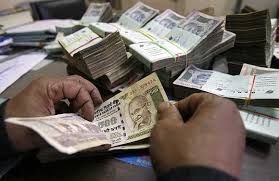 India’s public sector banks have a lot more to worry than accumulation of bad loans. Operating metrics of state-owned banks have steadily worsened over five years, affecting return ratios.
India’s public sector banks have a lot more to worry than accumulation of bad loans. Operating metrics of state-owned banks have steadily worsened over five years, affecting return ratios.
While costs have risen and margins declined, dividend payouts remain elevated.
Analysts believe this is uncalled for, as the bank’s core capital has gotten eroded over time, thanks to such payouts.
In FY14, the government infused Rs 14,000 crore (Rs 140 billion) into public sector banks, a pittance when seen in proportion to their capital requirement.
Over the past five years, Rs 75,000 crore (Rs 750 billion) has been infused by the government and the Life Insurance Corporation into PSBs, but that is not enough given the rise in bad loans and high payouts.
Under the Basel-III norms, PSBs will need to maintain Common Equity Tier-1 capital of nine per cent, if a loan growth of 15 per cent is assumed, which implies a capital infusion of $30 billion.
This is because PSBs make hefty dividend payouts and their return on equity has steadily fallen over five years (8-14 per cent for large banks), which has depleted core capital to below 10 per cent.
Deutsche Bank Markets Research says: "Post dividend payout, the retained capital is less than 10 per cent for the larger banks.
“Therefore, banks lose about 40-80 basis points of core capital every year (at the current price/book value multiple of 0.5-0.6x), this means that dilution will be about 15-16 per cent (every year) to maintain the current ratios.”
Dividend payout by most public sector banks in FY13 was between 15 and 26 per cent.
PSBs having weaker capital ratios will need to dilute more. State Bank of India, India’s largest lender, is currently comfortable, as its Tier-1 is 10.2 per cent and it has also raised Rs 10,000 crore (Rs 100 billion) from the government through a preferential route.
Espirito Santo Investment Bank Research expects SBI to dilute 11 per cent to raise Rs 25,100 of equity capital. Punjab National Bank has a Tier-1 of 9.1 per cent and is likely to dilute 25 per cent to raise Rs 14,400 crore (Rs 144 billion).
The worst among the PSBs, in capital adequacy, are Union Bank of India and Bank of India.
Espirito Santo says though Bank of India recently received Rs 1,000 crore (Rs 10 billion) of equity capital from the government of India through preferential allotment, leading to eight per cent dilution, “despite this dilution, BoI has Tier-1 ratio of 8.2 per cent and in our base case scenario, we expect dilution of 50 per cent”.
Union Bank has a Tier-1 ratio of 7.6 per cent and will need to dilute 56 per cent to raise Rs 11,600 crore (Rs 116 billion).
Image: A banker counts money; Photograph: Reuters











